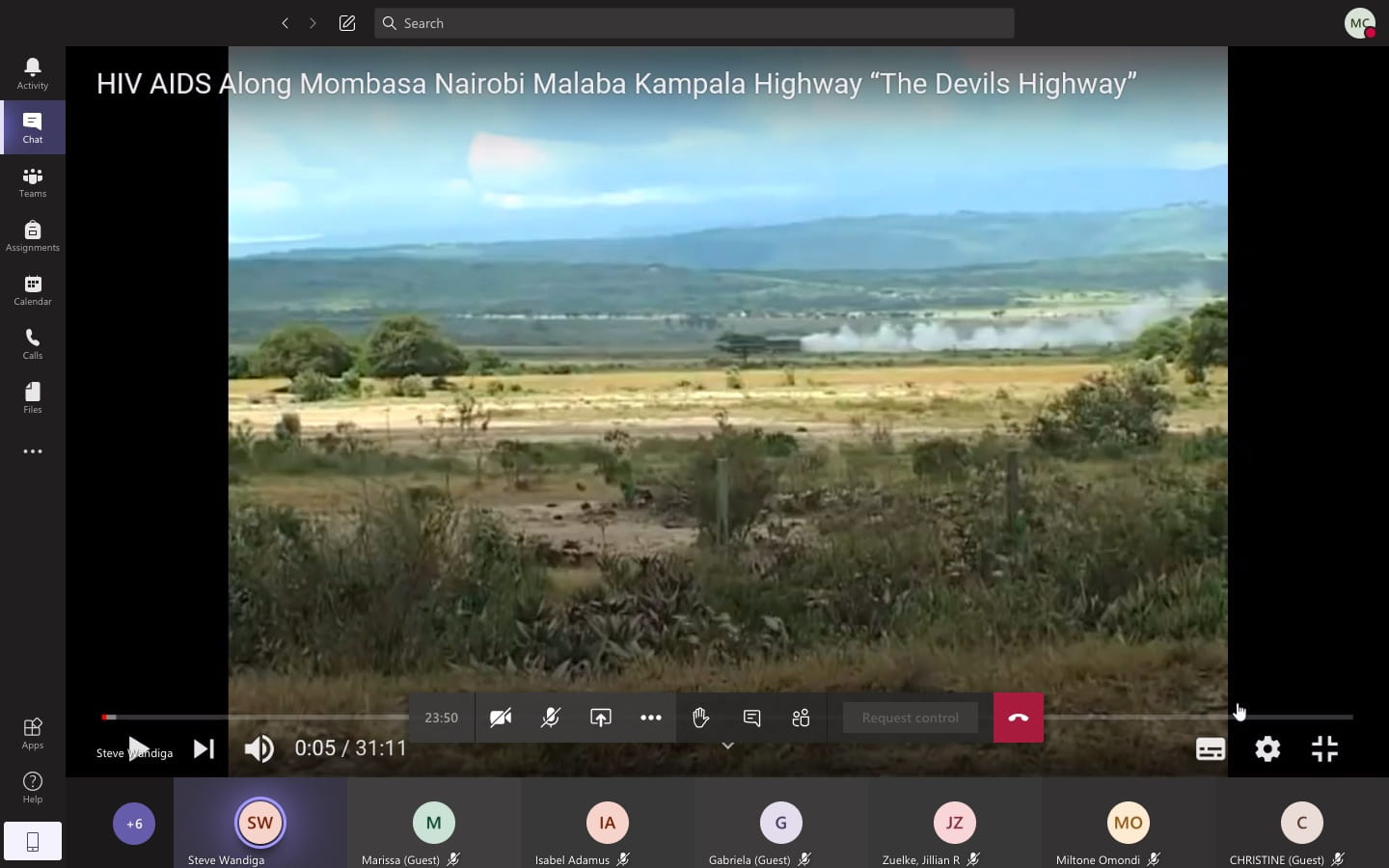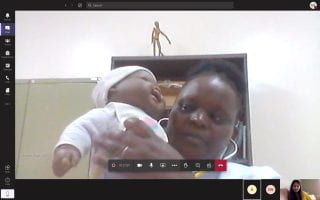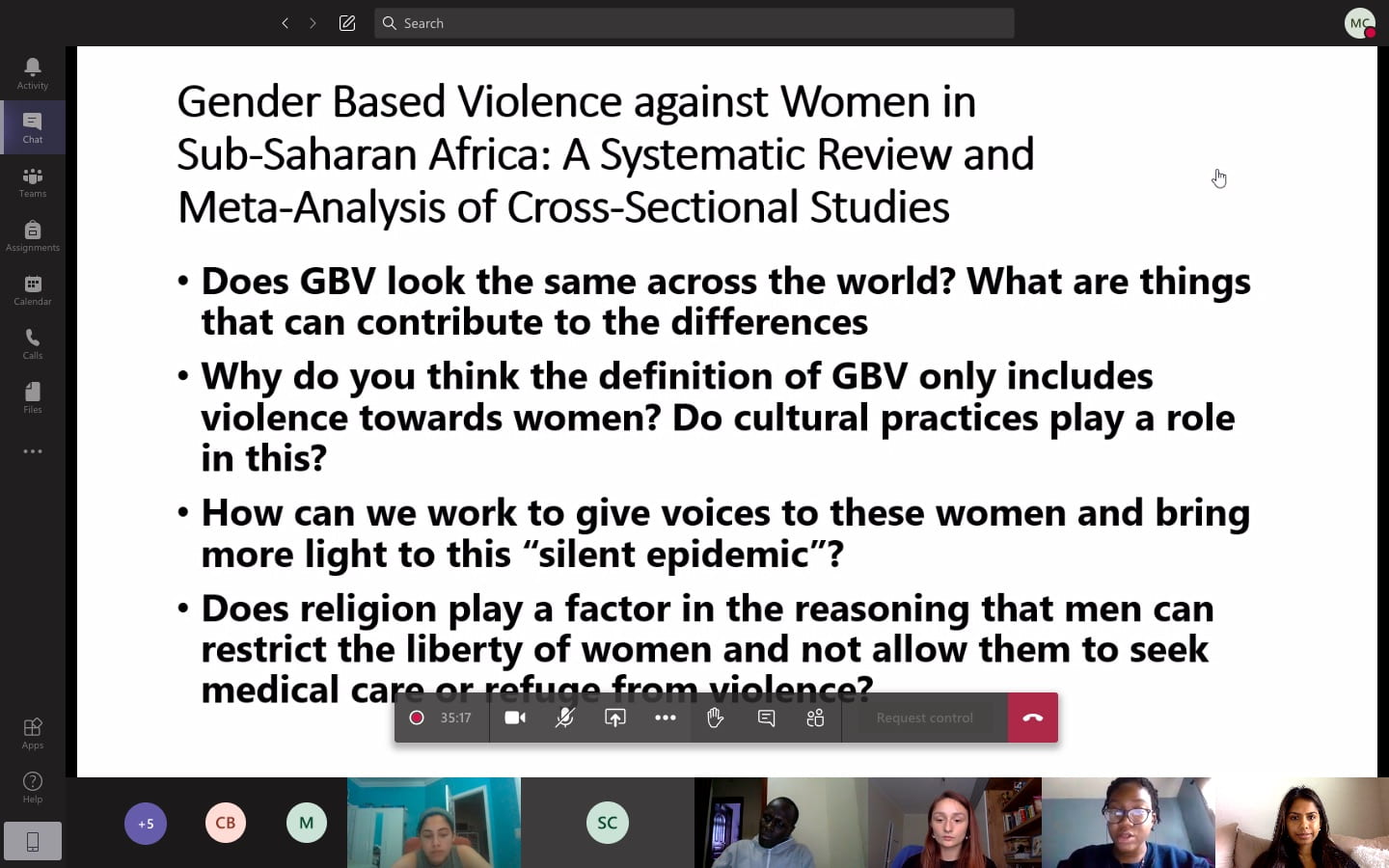Honors College Fellow Meghana Chithirala, a pre-med junior double majoring in chemistry/biochemistry and economics, planned to spend the summer polishing her French skills in Perpignan, France –– but the COVID-19 pandemic forced a change in plans. She was one of the first honors students to sign up for a virtual international internship. Rotations through the HIV Clinic and pediatrics, critical care and neonatal units at Jaramogi Oginga Odinga Teaching and Referral Hospital in Kisamu, Kenya, proved to be an eye-opening introduction to public health – and the benefits of online internships.
For the past year or so, I had been preparing to study abroad in France this summer. I often imagined myself exploring the beaches of Perpignan, eating all the pasta my stomach could handle, and being fully immersed in the language and culture. Unfortunately, the global spread of the coronavirus quickly dissolved those plans, and I was applying to the SIT Kenya: Virtual Internship in Public Health in the Tropics program thanks to an email Chelsea Hodge sent out to honors students before I knew it. While I was ready for a summer revolving around my French minor, I was excited to make the most out of my summer by focusing on my goal to enter the medical field one day.
I had many questions going into the program, especially about how much I would be able to learn through a screen. Couldn’t possibly be that much, right? However, I was quickly proven wrong. I was exposed to a multitude of issues in the Kenyan health care system and how developing nations are trying to utilize their limited resources efficiently in the first week alone. Over the course of the internship, I rotated between the pediatrics unit, critical care unit, HIV clinic, and neonatal unit at Jaramogi Oginga Odinga Teaching and Referral Hospital in Kisumu, Kenya. I have learned about the legal concerns and social issues when taking care of children in Kenya, how to collect a patient history and perform a physical examination for both children and adults, and gained insight on the diagnosis of prevalent illnesses in the tropics through symptoms and signs. Highlights include being able to examine case studies of a patient with sickle cell disease to obtain a real-life example of appropriately-filled-out hospital forms and nursing care plans, and a patient with HIV who was experiencing treatment failure for unknown reasons. These case studies made me feel like I was in the hospital in person, working in the different departments, instead of participating in the internship virtually.
Even though I was thousands of miles away, the expectations placed on me were not lowered by any means. I was often quizzed on previous topics, given readings to discuss, and assigned topics to research. The amount of work this internship required was definitely not expected, which was initially stressful as I was not sure I would be able to juggle it with my other responsibilities. However, an honest interest in what I had been learning kept me motivated to stay on top of everything, even if that meant I had to wake up at 6:00 a.m. every day due to the time difference.
Sure, there are challenges associated with virtual learning, such as technical glitches, but the Internet provided many advantages to amplify my overall experience. I was able to swiftly research topics as they were being talked about or record important sessions to rewatch them at a later time if necessary. I was not able to have an immersive cultural experience like I would have if I was physically in Kenya, but I was able to pick up on some Swahili and learn about the environment through the staff’s perspective and videos. This internship was honestly one of the greatest opportunities I had been given, and a part of me is kind of glad my France study abroad program was postponed until next summer.



